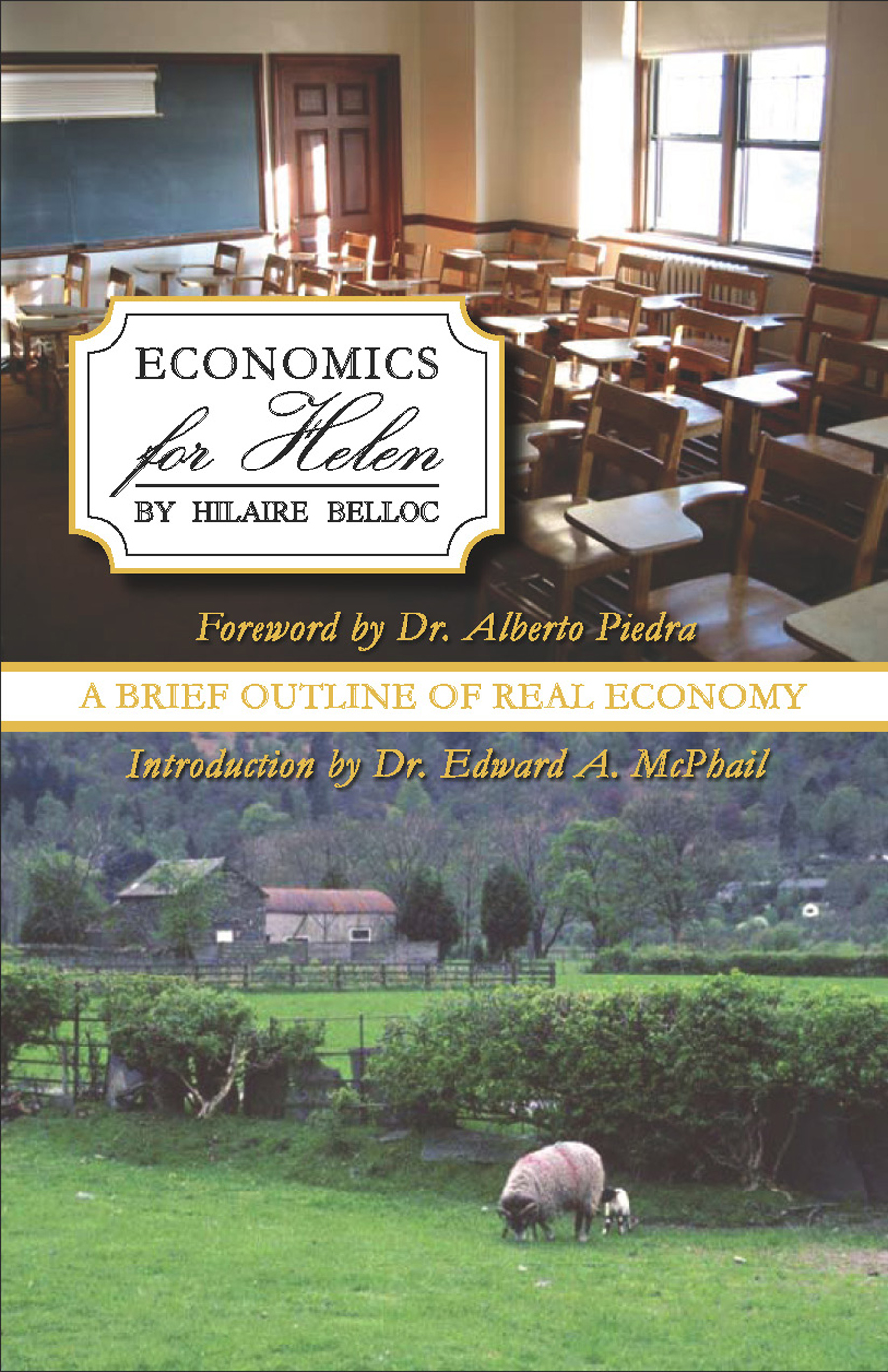
| ||||||||||
| ||||||||||
|
Click here at any time to see the contents of your shopping cart. |
Economics for Helen offers a true and simple sketch of economic principles to help our minds to return to reality. By starting with the basics, and defining simple concepts such as wealth, land, capital, labor, rent, profit, and interest, Belloc builds a picture of what is truly “necessary” about economics – the scientific and mathematical part – and what is often only claimed to be so by capitalist “conservatives” who claim to be unable (based on economic “law”!) to allow morals to factor into economic decision-making. He also provides brief discussions of the three basic types of socio-economic organization: capitalism, socialism, and the “Distributive State.” His readable, solid, and provocative treatise is a help for all who wish to disconnect mentally and practically from the unreality of modern economic life, to recover the contact with nature and real property that was once mankind’s “natural state.” Being productive will then mean not conducting on-line stock trades, but growing vegetables, learning a craft or trade, and mastering the basics of economic reality: food, shelter, clothing. Belloc wrote that “things will not get right again...until society becomes as simple as it used to be,” and on that way back to reality there will no doubt be suffering: “We shall have to go through a pretty bad time before we get back to that.” However, if the future brings suffering, it will also bring wisdom, even about things economic. Foreword —Dr. Alberto Piedra Introduction —Dr. Edward A. McPhail Preface —The Publishers Introductory Note Part I. The Elements I. What is Wealth? II. The Three Things Necessary to the Production of Wealth – Land, Labour and Capital 1. Land 2. Labour 3. Capital Points About Capital III. The Process of Production IV. The Three Parts into which the Wealth produced naturally divides itself – Rent, Interest, Subsistence 1. Subsistence 2. Interest 3. Rent V. Exchange VI. Free Trade and Protection VII. Money Part II. Political Applications Introduction I. Property: THE CONTROL OF WEALTH II. The Servile State III. The Capitalist State IV. The Distributive State V. SOCIALISM VI. International Exchange VII. Free Trade and Protection as Political Issues VIII. Banking IX. National Loans and Taxation X. The Social (or Historical) Value of Money 1. The Actual Purchasing Power of the Currency 2. The Number of Purchasable Categories 3. The Purchasing Value of the Whole Community XI. Usury XII. Economic Imaginaries | |||||||||||||||||||||||||||||||||||||||||||||||||||||||||||||||||||||||||||||||||||||||
| Attention bookstores: call or e-mail today for orders in quantity with the standard trade paperback discount: |
IHS Press 222 W 21st St. Suite F-122 Norfolk, VA 23517 877-IHS-PRES (877.447.7737) query@ihspress.com |
||

